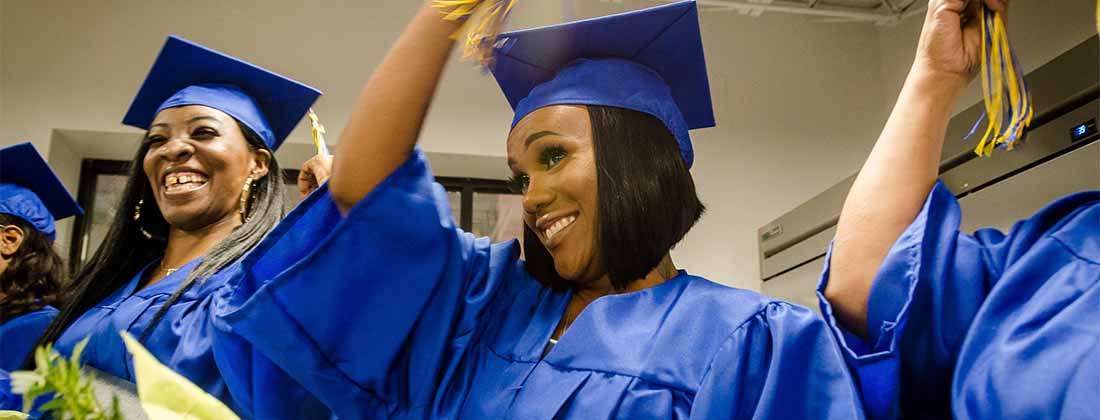Episode 2
“I decided to keep going” – High school dropout to college freshman
Oct. 23, 2018Nyla Wills dropped out of high school as a sophomore about six years ago to help care for her ailing mother and work to support the family.
In 2017, when it came time to continue her education, she did so through a Goodwill Excel Center, an adult high school specifically designed to provide a high school diploma and industry certifications or college credit to adults while addressing the real-life factors that get in their way.
“I had a cousin that went to Excel and got done with high school very quickly,” Wills says. “The Excel Center gets you out of high school pretty quickly. She told me all this great stuff about it, and so I was like, ‘OK, well, I’m going to try to go ahead and get in there, too.’”
I talked to Wills and Betsy Delgado, the vice president of mission and education at Goodwill of Central and Southern Indiana, on our Lumina podcast “Today’s Students/Tomorrow’s Talent.”
Delgado told me that in eight years, the Excel Center has grown from one school in Indiana to 18 schools across five states, and they’re about to open another six soon.
“For our future workforce, or the workforce even of today, to be able to compete and to be able to enter the economy, they’re going to need these post-secondary academics,” she says.
Through the Excel Centers, students complete all the requirements that a traditional student has. They go to school on a flexible weekday schedule, then do homework and study or rest, then—like Nyla and most other Excel Center students—go to work. And while Excel Centers do provide childcare for their students, many students must balance parenting on top of their rigorous coursework.
Students also get a life coach, someone who walks alongside them and helps them think about and anticipate things that might impede them from graduating. That can mean anything from transportation to housing to food. The coaches also help students going on to college with school and financial aid applications.
Wills liked that the Excel Center felt like a school, even more so than the traditional school she left as a sophomore. When she went to class in the morning, the teachers would stand outside the classrooms and greet the students. Nyla and her classmates can participate in student council, sign language club, or video game club.
“I thought that was pretty amazing because, not a lot of us get that type of attention,” she says. “Also, one thing I love about the staff is, they introduce us to a lot of new things, like we take trips to colleges and they introduce us to the certifications. A lot of us never heard about being able to get a certification or getting college credits and stuff like that. I think that’s pretty cool.”
Wills joins the 1,237 adults who earned a high school diploma last year through the Excel Center. And like the vast majority of graduates, this isn’t the end of her education journey. In January, she will be a first-year student at Ball State University in Muncie, Indiana. She plans to study psychology, with a minor in business or philanthropy, and she’s already earned her first three credits through classes she completed at Excel.
“Coming from a household that didn’t have much money, it was very important for me to go ahead and get a job,” she says, “but I also always wanted to continue my education. Psychology is something that I’m very, very interested in, so that’s one of the main reasons as well why I decided to keep going.”

